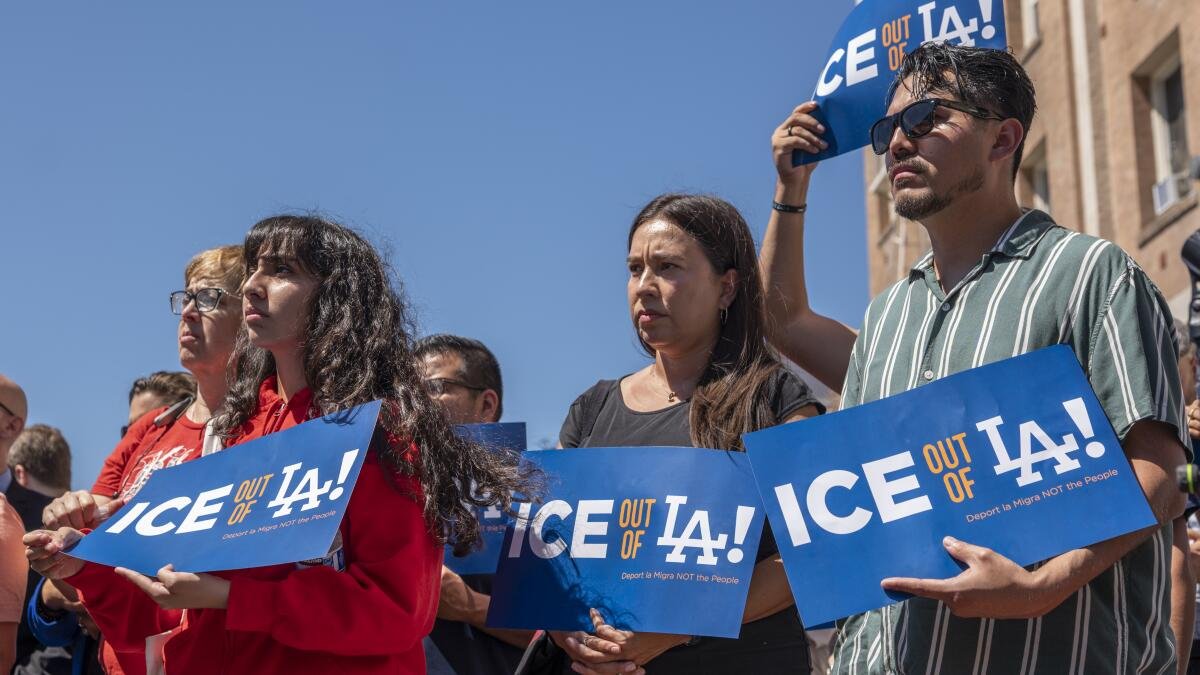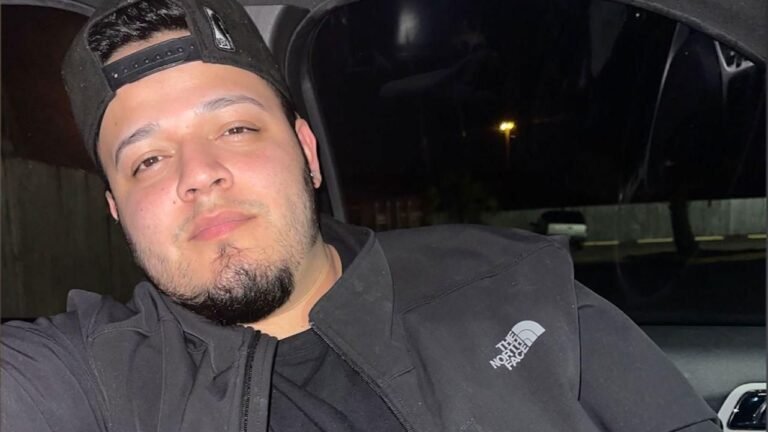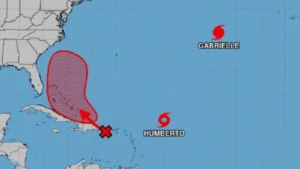Cesar, a green card holder and a student at Georgetown University in Washington, never thought he needed to carry proof that he had permission to be in the United States.
But that changed last week, when the Supreme Court paved the way for a person’s ethnicity to be at least a partial factor behind immigration arrests by law enforcement.
“Now I have to carry it all the time,” he says.
“And that’s very scary, because if I lose it, there’s a whole different process, tariffs and consequences,” said Cesar, who spoke to CNN on condition that only his name was used.
Since the beginning of President Donald Trump’s second term, immigrant advocacy groups have recommended that migrants, green card holders, and non-white U.S. citizens carry their documents as additional protection so they don’t get caught up in immigration raids.
It was an arduous request for people like Cesa, who feared losing the papers they showed were legally in the United States, and the fees, long waits, and possible persecution that could entail if that happened.
The estimate is different following the Sept. 8 Supreme Court ruling, which allows the Trump administration to continue with what critics describe as “walking” immigration patrols in California, according to immigrants and activists.
They fear that this decision will encourage indirect racial discrimination and allow federal agents to make indeterminate judgments about who they believe may or may not belong in the country.
Others who spoke to CNN highlighted the complicated history of the alleged racial discrimination by security forces in the United States, from the policies of stopping and registering in several major cities of the country to government surveillance against mosques and Muslims shortly after the September 11 attacks.
The ruling, Cesar said, “confirms what we had already noticed. He just put it in writing.”
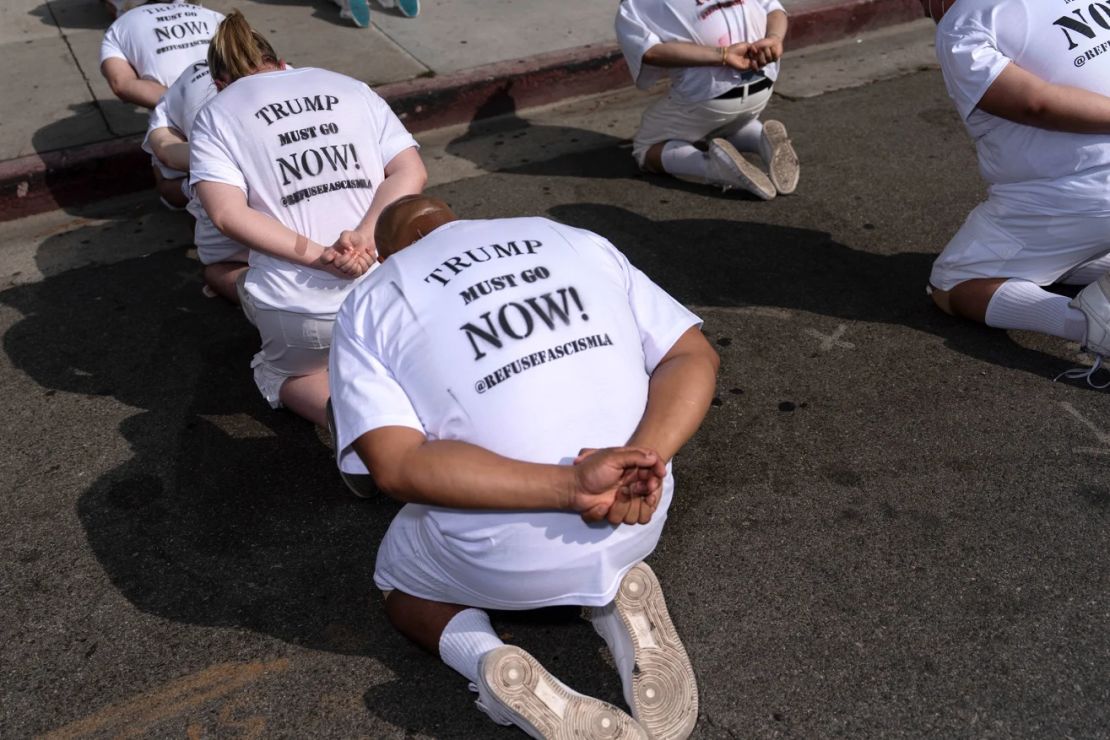
“A nation that shows its roles”
In its emergency ruling, the conservative-majority court rejected lower court verdicts that said parts of Trump’s immigration operations in Southern California — which in some cases involved armed and masked Immigration and Customs Enforcement agents pushing people away who appeared Latino to ask if they were U.S. citizens — violated Fourth Amendment rights.
Those sentences, now revoked, prohibited the Government from detaining people to ask their status on the basis of only four factors: the race of the detained person, whether he spoke Spanish or English with an accent, his presence in places frequented by immigrants, or his employment in positions habitually occupied by undocumented.
While that litigation only addressed seven Southern California counties, the court’s decision could be interpreted as a green light for such detentions across the country, especially in cities like Chicago, Washington, and Boston, where the administration has ordered increased immigration enforcement, and Memphis, where Trump says he will deploy the National Guard and police personnel of several federal agencies.
Immigration lawyers, immigrants who live legally in the U.S, and non-white U.S. citizens now worry that harmless activities that are not indicative of illegal behavior (speaking Spanish, doing certain jobs, or looking like someone from South or Central America) will be used as reasons for law enforcement to stop and question them.
“This is going to affect everyone, regardless of whether they are documented or undocumented immigrants, or if they are citizens,” said Jennifer Bade, a Boston immigration attorney. “I’m very worried, because this makes us a nation where appearance and language will turn everyone into suspects.”
“It just gave the green light to racial discrimination,” he added.
The Department of Homeland Security, which oversees ICE, called the Supreme Court’s decision a “victory for the safety of Californians and the rule of law.”
Tricia McLaughlin, a spokeswoman for the agency, said law enforcement “will not stop and continue to arrest and expel murderers, rapists, gang members and other illegal criminal immigrants.”
Taking extra precautions
Andrea, a Venezuelan resident of Washington and hired by the government, commented, “Anyone who reads a basic history book can see the danger of this decision.” He also asked that CNN only use his stack name.
“This makes race itself, speaking Spanish or looking Hispanic, a pretext to suspect anything now,” he complained. “Today is to be Hispanic and speak Spanish; tomorrow, what other group are they going to demonize?”
He described the additional precautions he took in Washington, a city that has seen an increase in the number of federal and National Guard agents as part of Trump’s crackdown on crime.
Recently, while walking through the National Mall with friends, Andrea said, “We made sure we didn’t speak Spanish.”
The Supreme Court did not provide any analysis explaining its decision to overturn lower court rulings. However, in a 10-page concurrent opinion, Judge Brett Kavanaugh wrote that, in cases where law enforcement officers detain legal immigrants, “the interrogation in those circumstances is usually brief, and those people may be released immediately after clarifying to immigration agents who are U.S. citizens or who are legally in the United States.”
He also wrote: “To be clear, apparent ethnicity alone cannot generate reasonable suspicion; however, according to this court’s jurisprudence regarding immigration detentions, it may be a ‘relevant factor’ when considered along with other outgoing factors.”
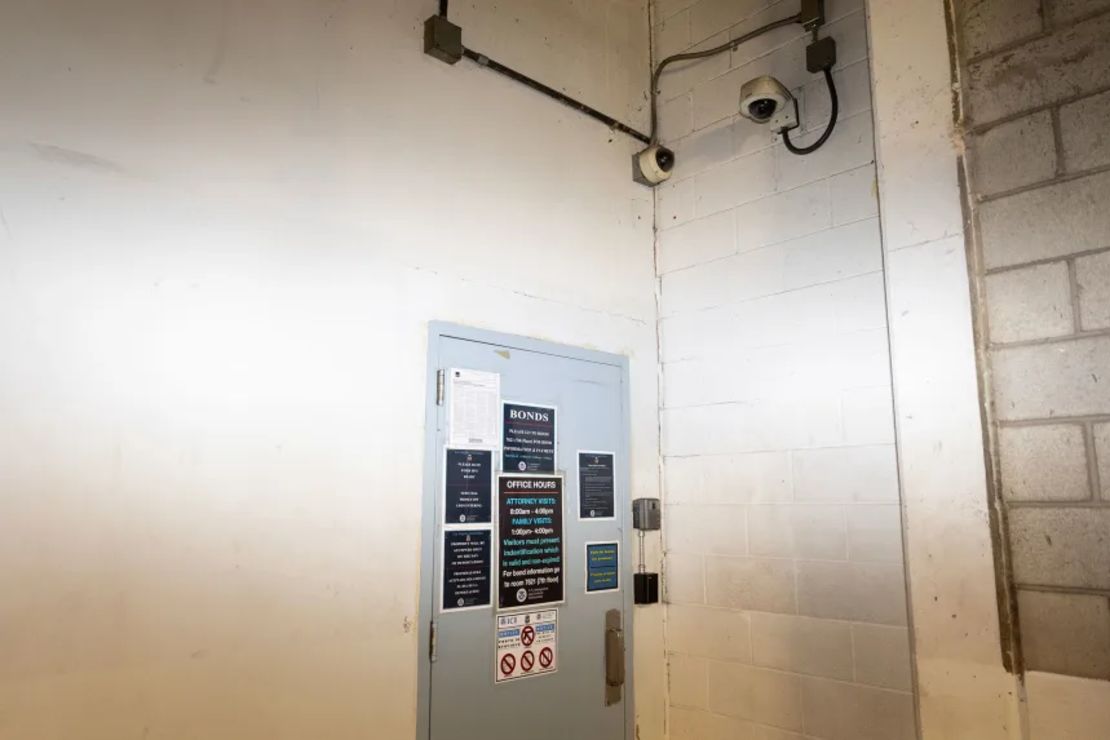
In June, before escalating immigration control measures in several major U.S. cities, CNN had already identified several cases of people detained by ICE despite being described as U.S. citizens.
In one case, a citizen briefly detained by a federal public safety agency claimed that he was told he resembled someone they were looking for.
In another case, one citizen said ICE agents held him against a fence and asked him which hospital he was born in, even though he had told them three times that he was a U.S. citizen.
Some said they had been taking precautions for months, or since Trump took office, and they now feel justified in light of the ruling.
Francisco Moreno, executive director of the Los Angeles-based Council of Mexican Federations in North America and a naturalized citizen, said he has been carrying his U.S. citizenship test since the city’s widespread immigration raids began in June.
“I’m a U.S. citizen and I carry my citizenship card because I don’t know if they’re going to stop me at some point, if they’re going to ask me questions simply for being brown, for speaking Spanish, or because I’m also defending immigrants,” she said. “So we all fear the worst, and that’s daily life here in Los Angeles.”




